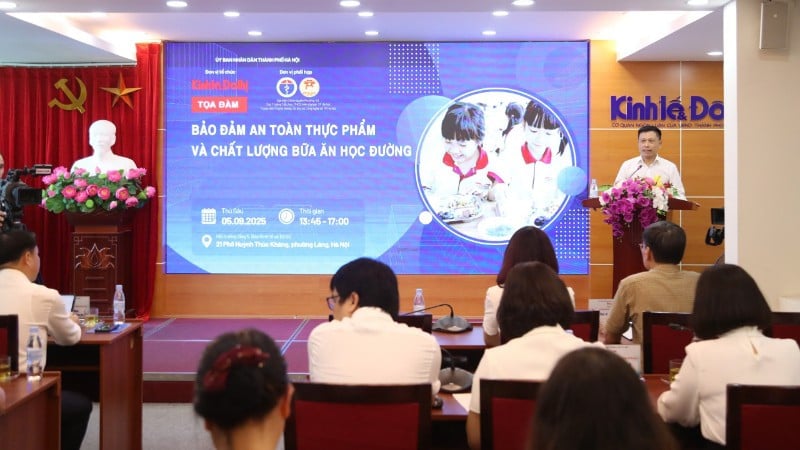
In his opening speech at the seminar, Editor-in-Chief of Economic and Urban Newspaper Nguyen Thanh Loi emphasized: Food safety in schools, especially the quality of school meals, has a direct impact on the health, physical and mental development of students - the future generation of the country. This is not only the responsibility of the education , health or local sectors, but also the task of the whole society.
"The Organizing Committee hopes that through the program, it will contribute to raising social awareness, promoting community supervision and accompanying the city in its efforts to build a safe and healthy educational environment for students," emphasized Mr. Nguyen Thanh Loi.
Ensuring food safety and quality of school meals
The 2025-2026 school year is a very special year, when for the first time Hanoi implements Resolution 18/2025/NQ-HDND on regulating the mechanism for supporting meals for primary school students, while promoting food safety management according to the two-level local government model.
To ensure food safety in school meals, so that each day at school is truly a happy, safe and healthy day for students, there needs to be a coordinated participation of the political system, managers, and local authorities, to carry out well the work of inspection and supervision, to ensure safe food processing and traceability of food origin.
At the seminar, the guests brought valuable information, from the management perspective to practical implementation at the facility, and expert advice, contributing to clarifying the efforts, difficulties as well as solutions to improve the quality and ensure safety for school meals.
The guests all emphasized the need to ensure food safety in schools. Accordingly, schools need to contract with reputable suppliers with full legal documents to be able to trace the origin to the place of production, cultivation, and breeding. Strictly control the stages according to the 5 principles of the World Health Organization: Keep clean; separate; cook; store at safe temperatures; safe water and food ingredients.

The kitchen ensures one-way, fully equipped with kitchen equipment that is still in good working order... There is a self-monitoring team for food safety, improving the quality of monitoring specific practical skills according to the 3-step food inspection book and practicing proficiently into habits the skills in the processing process such as the 6-step hand washing process, the glove wearing/removing process, the mask wearing process, removing the mask properly, the tool sterilization process...
The menu must be built to suit the age, balancing the 4 groups of substances (protein, starch, fat, vitamins and minerals), according to the table of recommended nutritional needs for Vietnamese people, the table of chemical composition of Vietnamese food of the National Institute of Nutrition. Reduce salt, sugar, oil, limit processed foods, fast food. Increase green vegetables, seasonal fruits, use whole grains and healthy protein sources (fish, eggs, tofu, mushrooms, milk...).
In particular, it is necessary to strengthen education and create healthy eating habits for students, because safe school meals are a necessary condition, while education on food safety and nutrition and creating a sustainable eating environment are sufficient conditions to form good habits for future generations.
Do not cut student food rations
Deputy Director of the Hanoi Department of Education and Training Vuong Huong Giang said that Resolution No. 18/2025/NQ-HDND of the City People's Council on the mechanism for supporting meals for primary school students in the area is the city's humane policy for the comprehensive development of the young generation.
This policy is expected to have a positive impact on the quality of school meals by reducing financial pressure on parents, while encouraging almost all primary school students to participate in school meals.

On the other hand, regarding food safety, when the scale of boarding meals increases sharply, management requirements must also be enhanced. Therefore, schools must develop a strict meal management process, from service contracts to the kitchen implementation process.
"Another very important thing is the coordination between schools, parents and local authorities in supervision. This is the key to unlocking the bottleneck. The Department of Education will coordinate with the Health Department and relevant agencies, local authorities to strengthen inspections at school kitchens, not only to ensure food safety but also to prevent the situation of cutting students' food rations. The common goal is to improve physical stature and build a safe and friendly school environment," said Ms. Huong Giang.
At the discussion, a noteworthy issue that many delegates mentioned was the state of food safety at restaurants, street vendors, and food carts around school gates - places that students are easily attracted to but have many potential risks regarding hygiene, unclear food origins, and additives.
Many opinions say that there needs to be close coordination between schools, local authorities and functional forces in inspection, supervision and propaganda work, in order to minimize the risk of food insecurity from the environment around schools.
Source: https://nhandan.vn/bao-dam-an-toan-thuc-pham-va-chat-luong-bua-an-hoc-duong-post906189.html






![[Photo] Amazing total lunar eclipse in many places around the world](https://vphoto.vietnam.vn/thumb/1200x675/vietnam/resource/IMAGE/2025/9/8/7f695f794f1849639ff82b64909a6e3d)









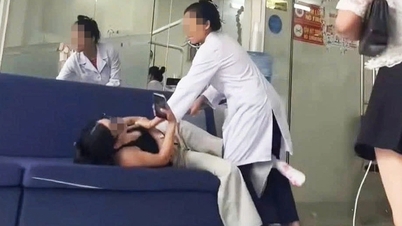








![[Photo] General Secretary To Lam chaired the Politburo's working session with the Standing Committee of the Central Public Security Party Committee](https://vphoto.vietnam.vn/thumb/402x226/vietnam/resource/IMAGE/2025/9/8/c94b4e255b194b939a1c7301893f5447)



















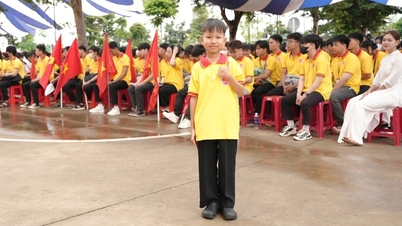





















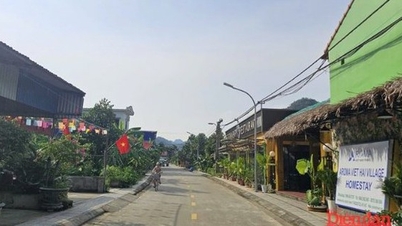












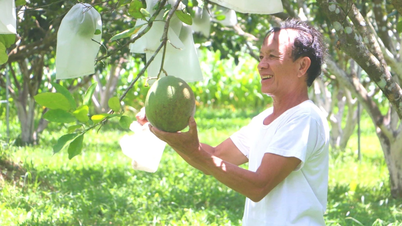










Comment (0)